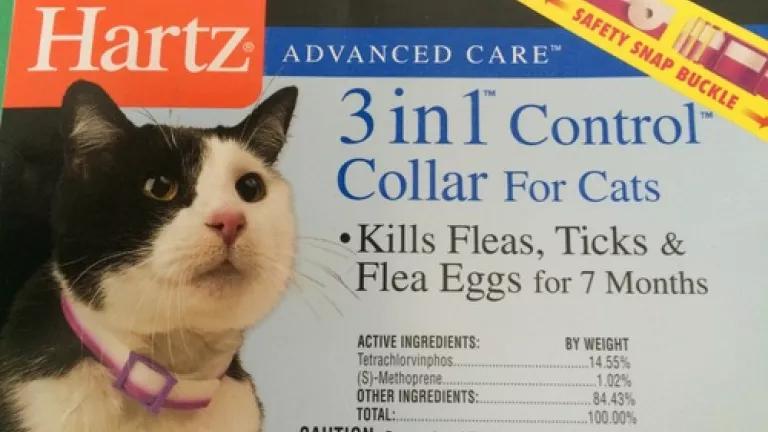NRDC v. EPA (Tetrachlorvinphos)
Case Status
ActiveLast Update

For more than a decade, NRDC has been fighting to protect children from the most dangerous chemicals in flea collars. And although the U.S. Environmental Protection Agency (EPA) finally announced that it would be taking action to ban these products, we’ll be keeping a watchful eye until the job is done.
Background
In 2009, NRDC experts published a report about dangerous pesticides in household pet products and petitioned the EPA to ban all pet uses of tetrachlorvinphos (TCVP), a neurotoxin found in pet flea treatments, such as flea collars. TCVP is part of a family of pesticides called organophosphates (OPs), which are known to be toxic to the nervous system. Even small amounts of exposure can interfere with a child’s brain development and increase the risk of learning disabilities. When children play with their pets, there is a risk that the chemical can be absorbed through the skin or ingested when they put their hands in their mouths.
The EPA had already restricted virtually all other indoor uses of OPs due to concerns that it can harm children’s nervous systems, yet the agency continued to allow the use of TCVP in pet flea products.
Following years of inaction by the EPA, NRDC sued the agency in 2014, 2015, and 2019. In April of 2020, the court sided with NRDC, writing, “Repeatedly, the EPA has kicked the can down the road and betrayed its prior assurances of timely action, even as it has acknowledged that the pesticide poses widespread, serious risks to the neurodevelopmental health of children.” But later that year, EPA denied our petition—leaving a dangerous pesticide on the market.
So we sued the agency once more for violating the Federal Insecticide, Fungicide, and Rodenticide Act (FIFRA) in 2020. And again, the court sided with NRDC and ruled that the EPA must revise its misleading assessment of the impacts of TCVP.
Meanwhile, seeing the writing on the wall and after pressure from NRDC, retailers, including PetSmart and Petco, stopped selling flea collars containing TCVP in 2021.
Finally, on October 12, 2022, NRDC and our fellow health advocates were brought a step closer to victory. The EPA published its revised assessment, which found that the risk estimates for TCVP flea collars were at unacceptable levels to protect kids, and stated it would propose a ban on all flea collars containing TCVP in the early part of 2023.
But our work is not yet done. In its assessment, the agency also noted that it may revisit this decision based on the results of two studies being conducted by the manufacturer of TCVP pet collars. We will continue watching the agency’s next steps.
Case Documents
Petition for a Writ of Mandamus (PDF) Appendix (PDF) EPA’s Response to Petition (PDF) Reply in Support of Petition (PDF) Ninth Circuit Decision, 2020 (PDF) Petition for review (PDF) Opening brief (PDF) Ninth Circuit Decision, 2022 (PDF) EPA’s revised assessment (PDF)Related Content

Nontoxic Ways to Protect Your Pet

Flea Collar Chemicals Are Poisoning Kids and Pets

No More Poisons on Pets: The EPA Must Act

New Year: NRDC Still Fighting for the Safety of our Pets and Kids

Fleas, and Ticks, and Neurotoxins! Oh My!

